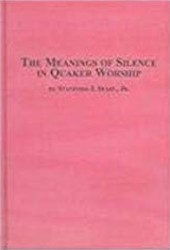Synopsis
The author asks nearly fifty Quakers from both the eastern part of the United States and in England, to describe their understandings of Quaker silent worship in the unprogrammed tradition. The research draws upon contemporary theory and integrates an interdisciplinary perspective about the complex relationship between silence and words. In addition, drawing upon the work of contemporary feminist scholarship, the book offers a critique of some key twentieth century studies about silent worship.






